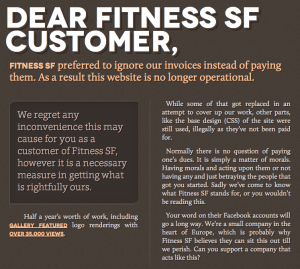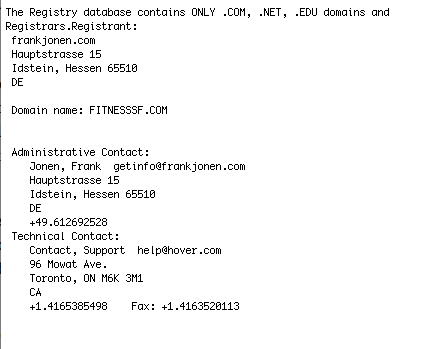 There’s an article on BI about how a disgruntled freelancer took a gym’s website offline over a billing dispute. Regardless of who’s right and who’s wrong in this particular case, it underscores the reality that too many businesses let their core domain holdings be registered on their behalf by freelancers or employees in their own names rather than in the name of the organization itself.
There’s an article on BI about how a disgruntled freelancer took a gym’s website offline over a billing dispute. Regardless of who’s right and who’s wrong in this particular case, it underscores the reality that too many businesses let their core domain holdings be registered on their behalf by freelancers or employees in their own names rather than in the name of the organization itself.
This is a huge vulnerability and one of the more common causes of why we see businesses going offline.
As we wrote in our “Definitive Guide To Never Losing Your Domain Name Again”, (members can download it here)
Whoever or whatever entity is listed in the Organizational contact for a domain name for all intents and purposes owns the domain.
Who is listed here? It should be YOU. Your name, your company or other applicable entity. Too many times, what gets listed here instead if YOU are any of the following:
- The personal name of an employee
- An outside web designer, IT consultant or programmer
- Your web hosting company
- Your Internet Service Provider
- Your Domain Registrar
- Anybody else who isn’t YOU or YOUR COMPANY
When this happens, you basically operate your entire web presence of your domain at the whim of whoever actually “owns” it: the person listed as the organizational contact.



Surely the big mistake here was not paying the dude’s invoice.
Kevin, disagree. The big mistake was putting their domain asset under a third-party contractor’s name and control.
There are two sides to every story, and perhaps the gym had a legitimate reason for withholding payment: you want the contractor to be able to arbitrarily decide your online fate? That’s what courts are for.